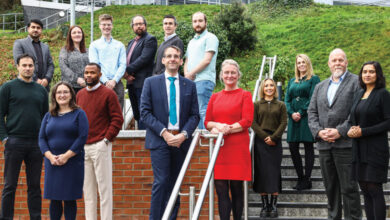EQ ICS: Delivering off the shelf solutions

Andrew Hughes, Technical Pre-Sales Lead at EQ ICS discusses the delivery of ‘off the shelf’ public sector software solutions to meet evolving customer demands.
How are the evolving demand of customers impacting software solutions?
There is a really interesting paradox when it comes to software solutions, particularly in the public sector. There has been an overarching demand for ‘off the shelf’ solutions over the previous couple of years, moving hand in hand with the rise of ‘SaaS’ and cloud based platforms.
Whilst this demand has evolved, the underlying business requirements for solutions to actually meet the needs of individual business units, still very much exists. In fact, it’s probably more prevalent than ever given the degree of governance that regulated and public sector bodies are subject to. It’s a real balancing act for suppliers taking these demands on board.
How do we give our customers an off the shelf solution, that manages to meet all of their complex business requirements? We’ve often seen customers try to tackle this themselves, by bending their processes to fit the software. I suspect commercial capability maybe drives that way of thinking, but I’m not necessarily convinced it leads to better solutions, or rather to better underlying processes that genuinely benefit the business.
How are Equiniti working to bridge the gap?
We want customers to be able to confidently pick up a solution, knowing it ticks the compliance box of being an off the shelf, configurable product, without having to sacrifice or bend their underlying business requirements.
As an organisation EQ have always been good at meeting the most complex of requirements, which to my view, is the most difficult part of the equation. We’ve therefore been able to focus on how we take our existing solutions and make them off the shelf and fully configurable. Whilst a challenge, I can honestly say it has been massively exciting and enjoyable taking the best technical solutions out there and using them to meet market demands. Our Perito Case product is seeing its biggest change in over 15 years. We can’t wait to share the results with everyone.
What are the challenges in delivering solutions for the future?
The challenges will be similar to what we’ve always seen, just amplified. By that I mean customers will always demand value, but with increased demand and expectations. Whilst customers would ideally like their core business requirements met with off the shelf solutions, we’re beginning to see an increased demand for ‘automated innovation’ on top, particularly in the area of Predictive Analytics. Using the underlying data within the solutions better in order to learn and predict outcomes, which in turn can automate processes. This is very exciting to see the full potential, but the challenge is how we harness the technology effectively within the market. It’s certainly something we’re well aware of and looking at seriously.
EQ ICS is based in Belfast where they’ve been delivering technology-led solutions for over 50 years, helping clients reduce costs, deliver value and drive efficiencies across their organisations.
Andrew has been part of the NI IT sector for over 20 years. Graduating with 1st Class Honours degree in Computing Science at the turn of the millennium his career started with the development of cutting edge research based projects centred on the early use of mobile enabled software, alongside advanced speech recognition processing. For the past 15 years, he’s been an integral part of EQ ICS as a Solution’s Architect, Microsoft Practice Lead and most recently as Technical Pre-Sales Lead, driving product road mapping and customer solutions across EQ’s portfolio of products and services.
T: 028 9045 4166
E: enquiriesMKT@equiniti.com
W: www.equiniti-technology.com






